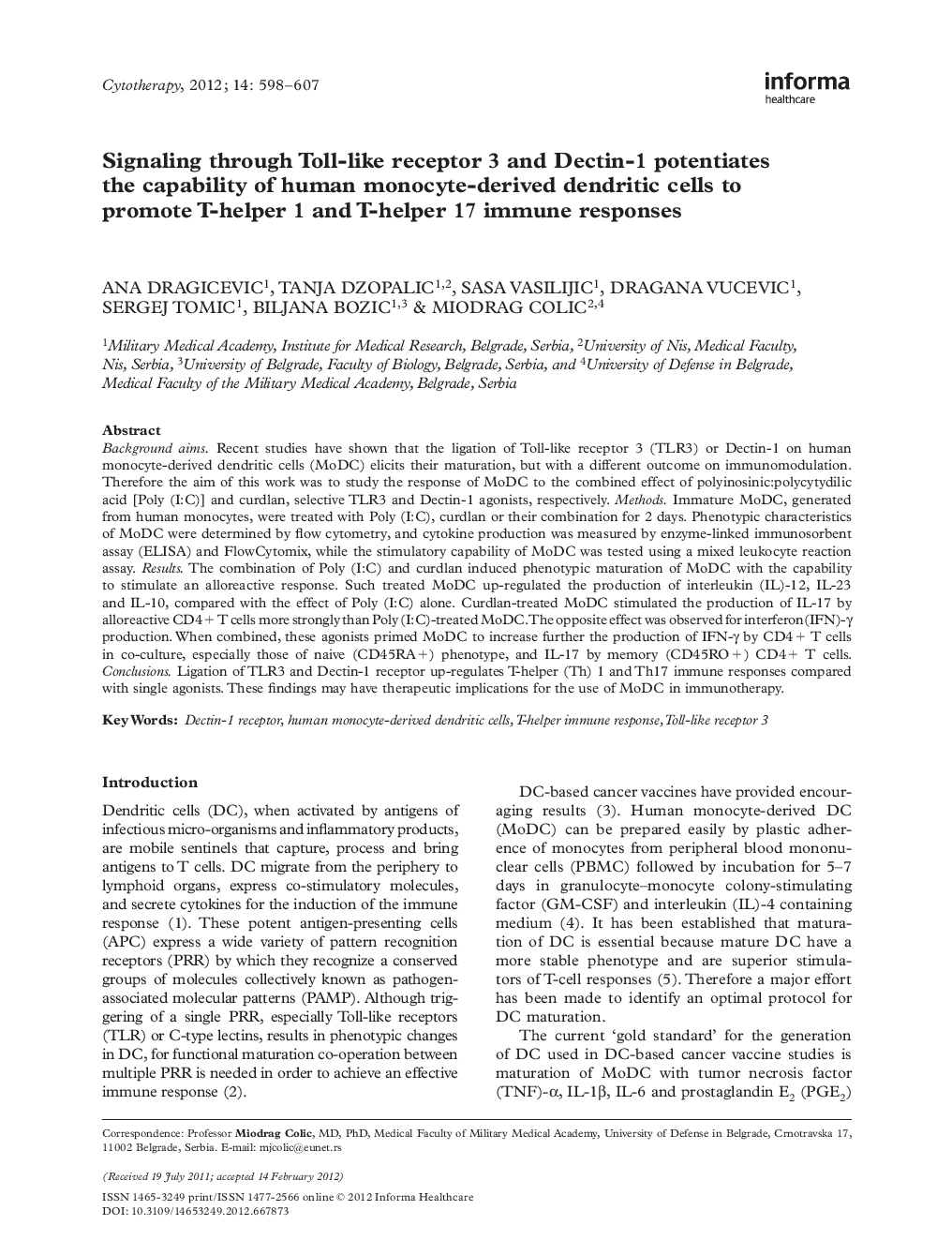| Article ID | Journal | Published Year | Pages | File Type |
|---|---|---|---|---|
| 2172678 | Cytotherapy | 2012 | 10 Pages |
Background aimsRecent studies have shown that the ligation of Toll-like receptor 3 (TLR3) or Dectin-1 on human monocyte-derived dendritic cells (MoDC) elicits their maturation, but with a different outcome on immunomodulation. Therefore the aim of this work was to study the response of MoDC to the combined effect of polyinosinic:polycytydilic acid [Poly (I:C)] and curdlan, selective TLR3 and Dectin-1 agonists, respectively.MethodsImmature MoDC, generated from human monocytes, were treated with Poly (I:C), curdlan or their combination for 2 days. Phenotypic characteristics of MoDC were determined by flow cytometry, and cytokine production was measured by enzyme-linked immunosorbent assay (ELISA) and FlowCytomix, while the stimulatory capability of MoDC was tested using a mixed leukocyte reaction assay.ResultsThe combination of Poly (I:C) and curdlan induced phenotypic maturation of MoDC with the capability to stimulate an alloreactive response. Such treated MoDC up-regulated the production of interleukin (IL)-12, IL-23 and IL-10, compared with the effect of Poly (I:C) alone. Curdlan-treated MoDC stimulated the production of IL-17 by alloreactive CD4 + T cells more strongly than Poly (I:C)-treated MoDC. The opposite effect was observed for interferon(IFN)-γ production. When combined, these agonists primed MoDC to increase further the production of IFN-γ by CD4 + T cells in co-culture, especially those of naive (CD45RA +) phenotype, and IL-17 by memory (CD45RO +) CD4 + T cells.ConclusionsLigation of TLR3 and Dectin-1 receptor up-regulates T-helper (Th) 1 and Th17 immune responses compared with single agonists. These findings may have therapeutic implications for the use of MoDC in immunotherapy.
